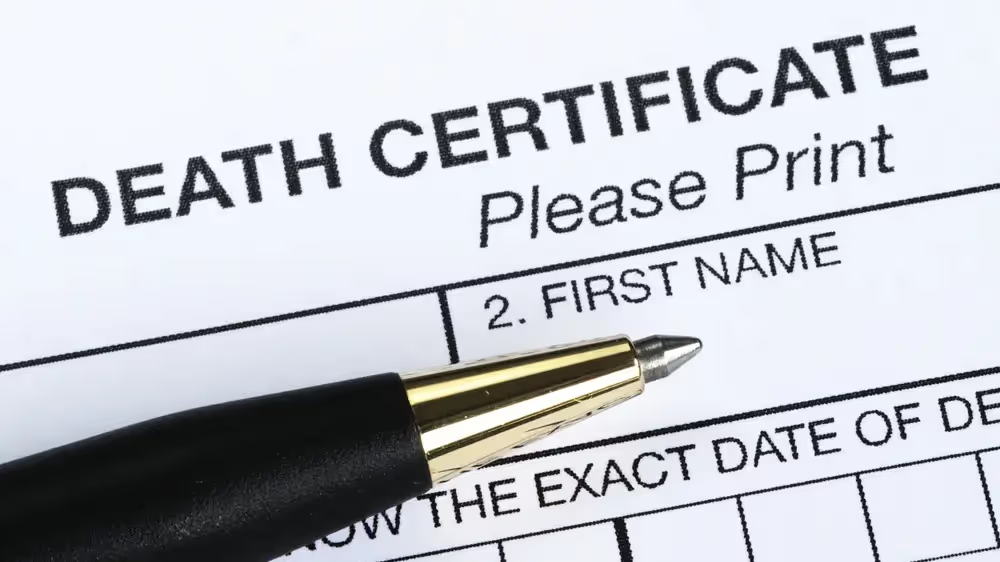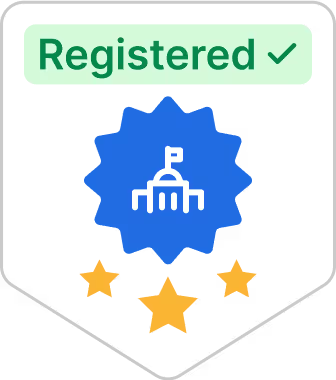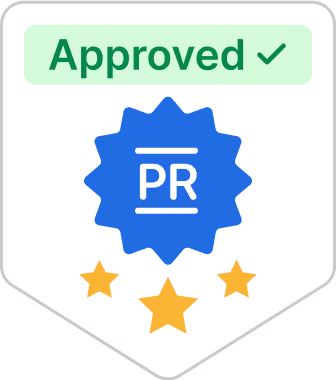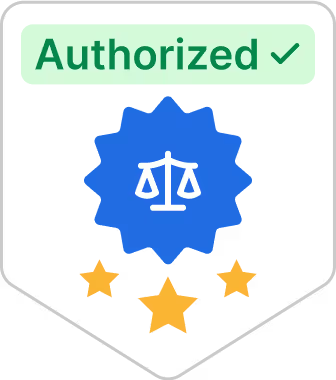4 Reasons Why You Need a Death Certificate When Someone Dies

What to do when someone dies? That is a deep and overwhelming question. If a loved one has recently passed or entered hospice care, bureaucratic or government-related tasks are likely the last thing on your mind. However, obtaining a death certificate could help to alleviate some of the stress that often accompanies grief after the loss of a family member or friend.
What is a death certificate, and what information is on a death certificate? How important is this in one’s end of life planning checklist? In this article, we’ll explore crucial details about this vital record and explain four reasons why you need to procure one as soon as possible after a loved one dies.
While you may not know where to get one or who needs death certificates when someone dies, you’ll learn all of this and more in our simple guide.
#1 Official records are key to completing other tasks
If you’ve never been responsible for a loved one’s affairs after their death, you may not know who needs original death certificates or how to get them.
Luckily, you won’t have to stress about keeping an original and certified copy safe—after you apply and receive notice that the death certificate has been filed, your local vital records office or courthouse will keep the original copy safe in storage. Instead of handing it over to you, they’ll provide certified copies, which you’ll need to complete other tasks, like informing appropriate agencies that your loved one has passed.
Some important entities to inform may include:
- The Social Security Administration, especially if your loved one received payments and other social security benefits
- The Internal Revenue Service, which will require you to file a final tax return
- The Department of Veterans Affairs, if applicable
- Your loved one’s banks, lenders, credit card companies, and brokerage companies
- The deceased’s insurance providers
- Websites where your loved one had active social media accounts
#2 It will authorize you to tend to your loved one’s affairs
If you’re the executor of a decease person’s will, or the will authorizes you to help the executor perform their duties, you’ll need a certified death certificate and a photo ID to prove that you’re allowed to tend to their affairs after they die.
For instance, if the will authorizes you to do so, you can help with transferring ownership of a loved one’s home to another relative by supplying your local tax collector’s office with a death certificate (and, in some cases, a copy of the will). Even if you’re not the owner, you can enlist a realtor or put the house on the market, oversee the sale, and manage the proceeds as long as you have a death certificate in hand and show that the deceased assigned you to the task.
A death certificate can also provide the proof you need to accomplish other tasks, like:
- Selling or transferring the title for the deceased’s car
- Transferring their bills to a different name
- Canceling their cell phone bill or subscription services
- Forwarding their mail to a different address
#3 A Death Certificate can help you prevent fraud
Unfortunately, fraudsters often take advantage of public records, local news, and obituaries to attempt to defraud families and friends of deceased people, or their financial institutions.
Since your loved one will no longer be able to protect themselves from identity theft, that responsibility will fall to their next of kin. As you work on closing your loved one’s bank accounts, settling their debts, and canceling their credit cards, carefully examine statements for suspicious charges—especially any that occurred after the time of death.
If you discover potential fraud, you’re much more likely to receive a swift resolution—and hopefully reimbursement for any lost funds—with a death certificate in hand. Furthermore, if you discover that someone managed to steal your loved one’s identity long after they’ve passed, you can resolve the problem by verifying that the victim is, in fact, deceased.
#4 It’s easier to handle your long to-do list
As you accomplish each step on your to-do list after someone close to you passes, you may be confronted with a barrage of questions. Repeatedly describing the circumstances—especially relating to tragic or untimely deaths—can be emotionally taxing and prevent you from getting the closure you need.
But, armed with a certified death certificate, you can deflect questions and direct well-meaning interrogators to the death certificate, which should include everything they need to cancel an account, transfer a title, or process a payment.
While certificates vary by jurisdiction, most death certificates include all of the details someone would need to accomplish a task, including:
- The deceased person’s name
- The time and date of their death
- Sex
- Age
- Social Security Number
- Date of birth
- Birthplace
- Cause of death
- Their last known address and city, county, and state of residence
- Marital status
- The names of any minor children
With a death certificate, you can avoid reliving a painful experience over and over as you handle their affairs.
Obtain a Death Certificate
Obtaining a death certificate online or in person as soon as possible will significantly help you and your loved one’s family as you manage their affairs after they die. While you should expect to encounter bureaucratic red tape and long lines, getting a death certificate is certainly worth the priority and effort.
Sources:
- National Institute on Aging. What to Do After Someone Dies. https://www.nia.nih.gov/health/what-do-after-someone-dies
- Business Insider. How to Manage a Loved One’s Finances After They Die. https://www.businessinsider.com/personal-finance/how-to-manage-finances-after-someone-dies
- Centers for Disease Control and Prevention. Funeral Directors’ Handbook on Death Registration and Fetal Death Reporting. https://www.cdc.gov/nchs/data/misc/hb_fun.pdf























